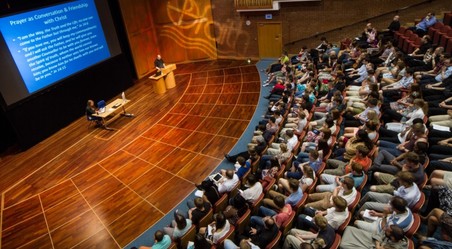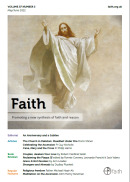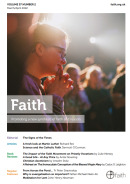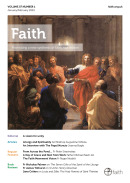Featured
Reunion Revisited

Lonely but prophetic voices always existed seeking the unity of Christians in these islands, including the nineteenth-century converts, Fr. Ignatius Spencer and Ambrose Phillipps de Lisle. Impetus was given to the movement by the nineteenth-century Oxford Movement, as the Church of England returned to patristic and Catholic sources to promote spiritual and moral renewal. The call for Reunion was taken up by the 1920 Lambeth Conference of Anglican bishops. Their Appeal made passing reference to the Catholic Church, but confident that they would receive no response. Anglicanism preferred rather to focus on practical cooperation with the Protestant Free Churches at home and vague overtures of sympathy towards the Orthodox and Lutherans overseas.
The Transgender Moment and the Catholic Vision of the Human Person
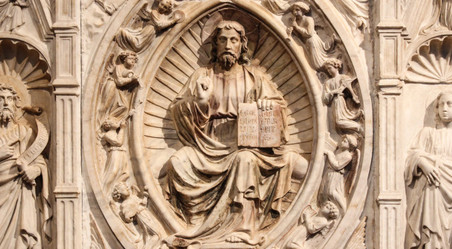
William Newton looks at a topical issue
Very likely there have been “transgender persons” around since antiquity but these individuals have always been more or less in the back-ground of social consciousness and there was never before an accompanying theory or movement. Clearly that has changed. The Church
Prayer before the Blessed Sacrament
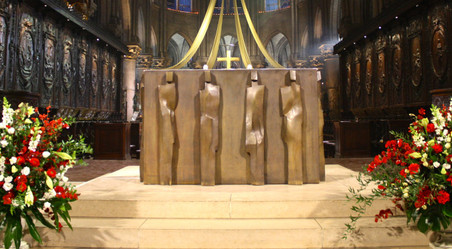
PRAYER BEFORE THE BLESSED SACRAMENT You are the Christ, the Son of the Living God, You are the one who reveals the invisible God, The first-born of all creatures The foundation of all things; You are the Master of humanity, You are the Redeemer, You were born, you died, and have risen for us; You are the centre of history and of the world; You are the one who knows us and loves us; You are the companion and friend of our life; You are the man of sorrow and of hope; You are he who must come And who one day will be our judge And, we hope, you will be our delight St Paul VI
Interview A new saint from Krakow

Joanna Bogle meets the biographer of Blessed Hanna Chrzanowska
Holloway on… The Covenant of Christian Marriage: Part I
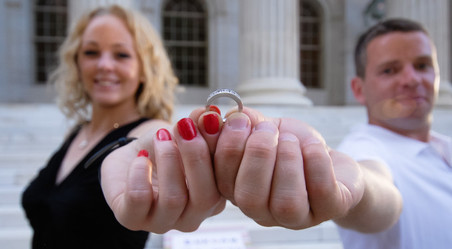
Holloway on… The Covenant of Christian Marriage: Part I
Book Review: An erudite and attractive appeal to humanists
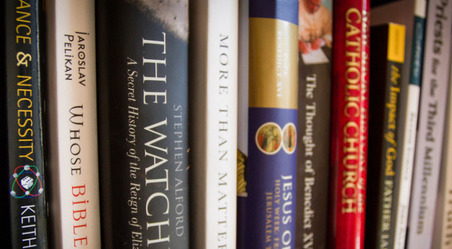
The Great Mystery: Science, God and the Human Quest for Meaning, by Alister McGrath, Hodder & Stoughton, 256pp, hardback £20.00, paperback £10.99. reviewed by Conor McDonough O.P.
Book Review: Can Thomism cope with Evolution?

Aquinas and Evolution - Why St. Thomas’ Teaching on the Origins Is Incompatible With Evolutionary Theory by Michael Chaberek, OP, The Chartwell Press, 272 pp, £14.00 reviewed by Mark Higgins
Book Review: Iraqi Christian Martyrs
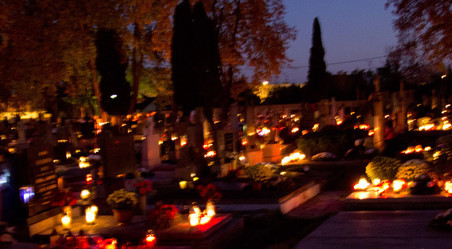
Doves in Crimson Fields by Robert Ewan, Gracewing, xiii + 213pp, £11.99 reviewed by Paul Marsden
Book Review: ‘Where does all the beauty come from?’
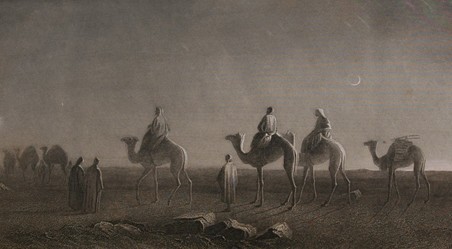
The Radiance of Her Face: A Triptych In Honor of Mary Immaculate, by Dom Xavier Perrin. Foreword by Dom Benedict Hardy OSB. Second Spring. 93pp. reviewed by Sr Mary Thomas Brown
-
Speaking the truth in love
The topic of sexual abuse has dominated Catholic discussions over the past months and weeks. There are many aspects to this sordid subject. One thing has remained obvious, just as it has been obvious for the past few decades : we need clear moral teaching and leadership. The Church does not have to struggle to discover what is right and what is wrong when it comes to sexual ethics. She has a clear and profound doctrine on the nature and purpose of human sexuality.
Moral guidance
But if there is promotion of the idea that there is no objective morality, that there is no such thing as mortal sin, that salvation is guaranteed regardless of any need for contrition and amendment of life, then it becomes easy to give into temptation, to slip into sin, and even to justify a double life in which, for example, an active homosexual lifestyle is lived alongside priesthood. Without clear moral guidance it is tempting for weak, confused and disorientated souls to be trapped into a belief that the Church’s teaching is “outdated” or impossible to live. The Catechism of the Catholic Church is clear:
2360 Sexuality is ordered to the conjugal love of man and woman. In marriage the physical intimacy of the spouses becomes a sign and pledge of spiritual communion. Marriage bonds between baptized persons are sanctified by the sacrament.
2361 “Sexuality, by means of which man and woman give themselves to one another through the acts which are proper and exclusive to spouses, is not something simply biological, but concerns the innermost being of the human person as such. It is realized in a truly human way only if it is an integral part of the love by which a man and woman commit themselves totally to one another until death.”
The Catechism lists the sins against chastity, and in listing rape among these, emphasises that there is a particular gravity where the rape of children has occurred by those entrusted to their care. Over recent decades there has been an apparent reluctance to enunciate the teaching clearly on the part of those in positions of authority in the Church. Too many bishops have been shy of stating clearly the fullness of the Church’s message. There has been ambiguity in material provided for Catholic schools, and in speakers at some Catholic events.
Homosexuality
On homosexuality the Catechism has this to say:
2357 Homosexuality refers to relations between men or between women who experience an exclusive or predominant sexual attraction toward persons of the same sex. It has taken a great variety of forms through the centuries and in different cultures. Its psychological genesis remains largely unexplained. Basing itself on Sacred Scripture, which presents homosexual acts as acts of grave depravity, tradition has always declared that “homosexual acts are intrinsically disordered.” They are contrary to the natural law. They close the sexual act to the gift of life. They do not proceed from a genuine affective and sexual complementarity. Under no circumstances can they be approved.
2358 The number of men and women who have deep-seated homosexual tendencies is not negligible. This inclination, which is objectively disordered, constitutes for most of them a trial. They must be accepted with respect, compassion, and sensitivity. Every sign of unjust discrimination in their regard should be avoided. These persons are called to fulfill God’s will in their lives and, if they are Christians, to unite to the sacrifice of the Lord’s Cross the difficulties they may encounter from their condition.
2359 Homosexual persons are called to chastity. By the virtues of self-mastery that teach them inner freedom, at times by the support of disinterested friendship, by prayer and sacramental grace, they can and should gradually and resolutely approach Christian perfection.
Pope Francis
Pope Francis has recently noted the importance of this with respect to the training and formation of priests: “We have to urge homosexual priests, and men and women religious to live celibacy with integrity, and above all, that they be impeccably responsible, trying to never scandalize either their communities or the faithful holy people of God by living a double life. It’s better for them to leave the ministry or the consecrated life rather than to live a double life.” We must teach that the Church’s sexual and moral teaching is an invitation to life and to joy. We should teach it whole heartedly - and we must insist that those, like Fr. James Martin, who clearly do not believe in the teaching of the Church, must make up their minds and choose.
Unity
We need doctrinal and moral unity in the Church and a challenge from the highest authority that priests and people, whatever their temptations and sins, must accept the teaching of the Church and at least try to live up to it or have the decency to leave. It is time for truth and courage. It is time to speak the truth in love (Eph 4:15).

